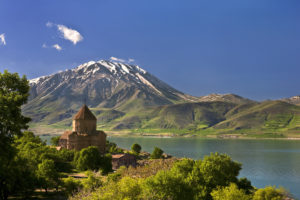
EU Eastern Anatolia Development Programme (EADP)
The East of Turkey has had delayed progress compared to the economic development of other regions in Turkey. In this context, the Eastern Anatolia Development Programme was a regional development programme aimed at building capacity for sustainable development by implementing innovative and participatory local policy and planning approaches.

Increasing Competitiveness of Middle Black Sea Region TR83
Turkey’s Middle Black Sea region was set up in 2009 and is now well established; the Middle Black Sea Region Development Agency (OKA) carries out activities to support the economic and social development of Amasya, Çorum, Samsun and Tokat provinces. The main objective of this project was to

Technical Assistance for Strengthening Institutional Capacity of the Judiciary and Execution System for the Fight against Addiction
The contract will contribute to the improvement of institutional capacity of judiciary in terms of fight against drug addiction. In this context the contract will cover activities such as trainings, workshops, needs assessment, drug addiction awareness raising group programmes, family counselling programmes, establishment of a monitoring and integration

Technical Assistance for Garment Training and Entrepreneurship Initiative (GATE for Women)
Women’s inequality in the labour sector has been an unsolved problem for generations. However, if women find the right support at the right time, it provides excellent results. Likewise, the overall aim of this project was to increase women’s employability and support women’s entrepreneurship by strengthening women’s vocational

Technical Assistance for Supporting the Solution of Economic and Social Integration Problems in Diyarbakır, Şanlıurfa, Gaziantep, and Erzurum, as Major In-Migrant Destinations
Rapid migration in major urban areas, namely Diyarbakır, Şanlıurfa, Gaziantep and Erzurum (DGES), have adverse impacts in Turkey. To reduce these unfavourable effects, EKOSEP aimed to support social integration and environment-related infrastructure problems due to migration in the selected provinces in a multi-actor manner. Furthermore, it aimed to

Support to Quality Infrastructure Framework within the DCFTA Context in the Republic of Moldova
The Moldovan Government has commitments under the EU Association Agreement (EU AA) roadmap relating to improving the domestic investment climate and enhancing the competitiveness of Moldovan businesses in foreign markets. This roadmap is designed to help close the country’s competitiveness gap, enhance its overall productive potential, move it

